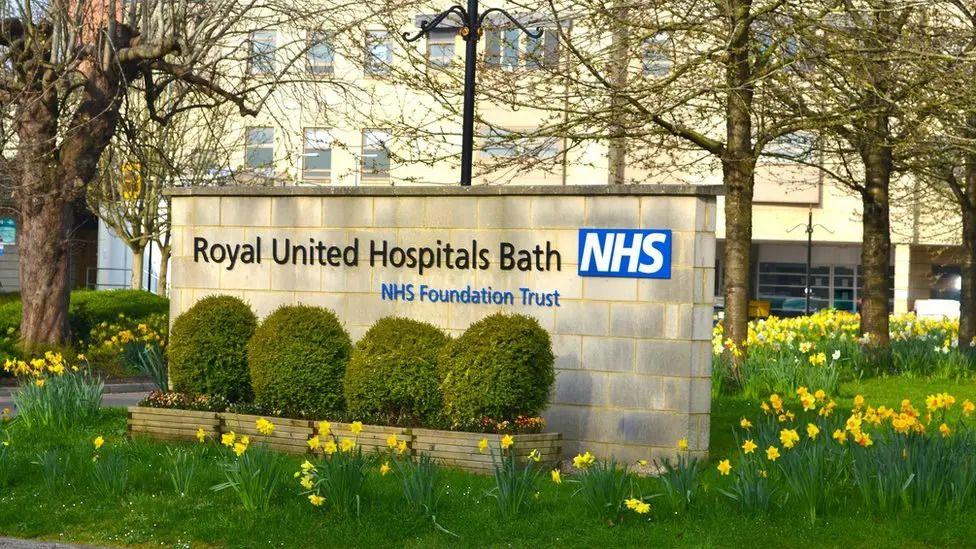'I'm lucky my cancer had a warning sign'

Becky Curtis was diagnosed with cervical cancer in 2020 during the Covid lockdown
- Published
A mum-of-two says she is one of the lucky ones, after her cervical cancer was diagnosed in the early stages thanks to a warning symptom.
Becky Curtis, 42, from Wiltshire, was rushed in for emergency surgery within 24 hours of doctors discovering her tumour.
She has now been in remission for five years and is warning others to be clued up on the symptoms.
"Don't ignore it – get an appointment with your GP. It really could save your life," said Ms Curtis.
Cervical cancer is often called a "silent killer" because it can often have no noticeable symptoms in its early stages.
Ms Curtis' only warning sign was "bleeding intermittently", which worsened when she walked.
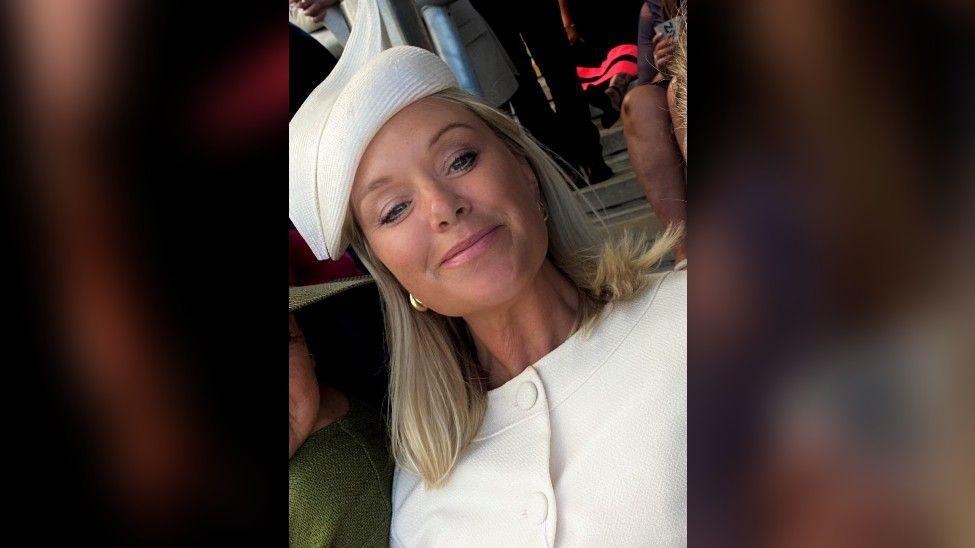
Mr Curtis said the RUH staff were "so caring and supportive" during her treatment
"They could see there was a tumour, but fortunately the cancer hadn't spread," she said.
"It was a very scary time for me personally, and with it all taking place in lockdown it was quite overwhelming."
Ms Curtis had her operation on her son's 14th birthday, which she said "added to the emotion".
"I had a very anxious wait after the operation, but it was good news and the surgery had been a success. I know for many women the outcomes can be very different," she said.
"I think some people don't realise that cervical cancer can be a deadly killer, but it really can be."
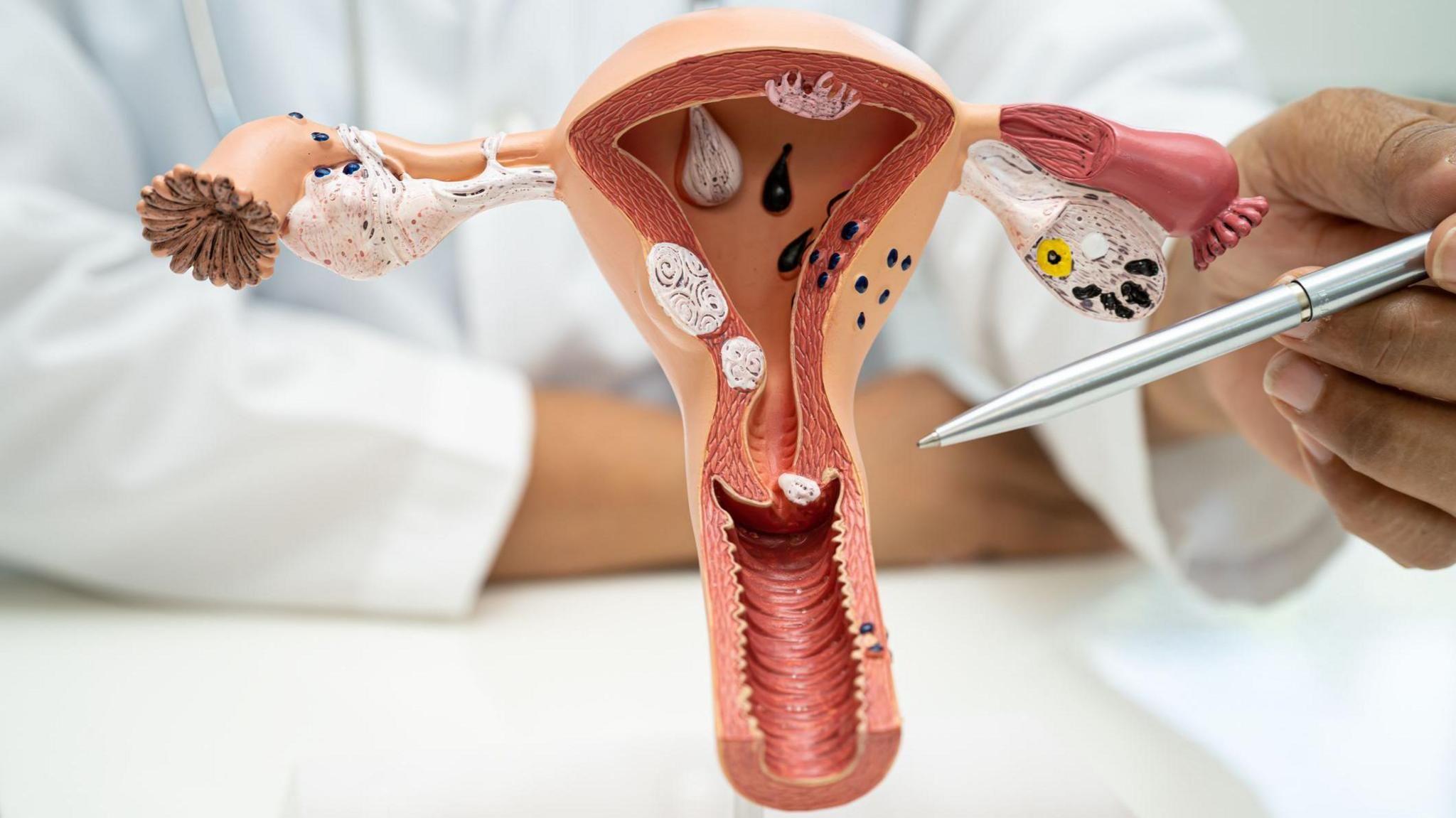
A swab is used to sample the lining of the vagina, which is then sent to a laboratory to test for human papillomavirus (HPV)
Most cases of cervical cancer are caused by human papillomavirus (HPV), a common virus that four out of five people will contract during their lifetime.
The HPV vaccination can reduce the risk of developing cervical cancer significantly, but Dr Glenda Beard, GP and clinical lead for cancer at the NHS Integrated Care Board, said people still needed to attend their cervical screening when invited.
"Cervical cancer can be prevented and cervical screening is an important part of this prevention," she said.
"It checks for changes in the cervix that can lead to a cancer developing if left undetected and untreated."
According to the latest NHS England data, more than five million eligible women are not up to date with their routine screening - with the lowest uptake being among those aged between 25 and 29.
"Unfortunately no vaccine is 100% perfect, so it's still really important that you get the screening and don't be falsely reassured," Dr Beard added.
What are the symptoms?
Globally, cervical cancer is the fourth most common cancer in women.
About 3,200 women are diagnosed with the disease every year in the UK.
The Royal United Hospital (RUH) explained cervical cancer can be cured if diagnosed at an early stage and "treated promptly".
Symptoms can include:
Unusual vaginal bleeding
Pain during sex
Vaginal discharge
Pain in the pelvis
Not everybody will experience these symptoms, but Ms Curtis said her message to other women was: "If something doesn't feel right, get it checked."
Cervical Cancer Prevention Week takes place from 21 to 28 January.
Get in touch
Tell us which stories we should cover in Somerset
Follow BBC Somerset on Facebook, external and X, external. Send your story ideas to us on email or via WhatsApp on 0800 313 4630.
Related topics
- Published20 January
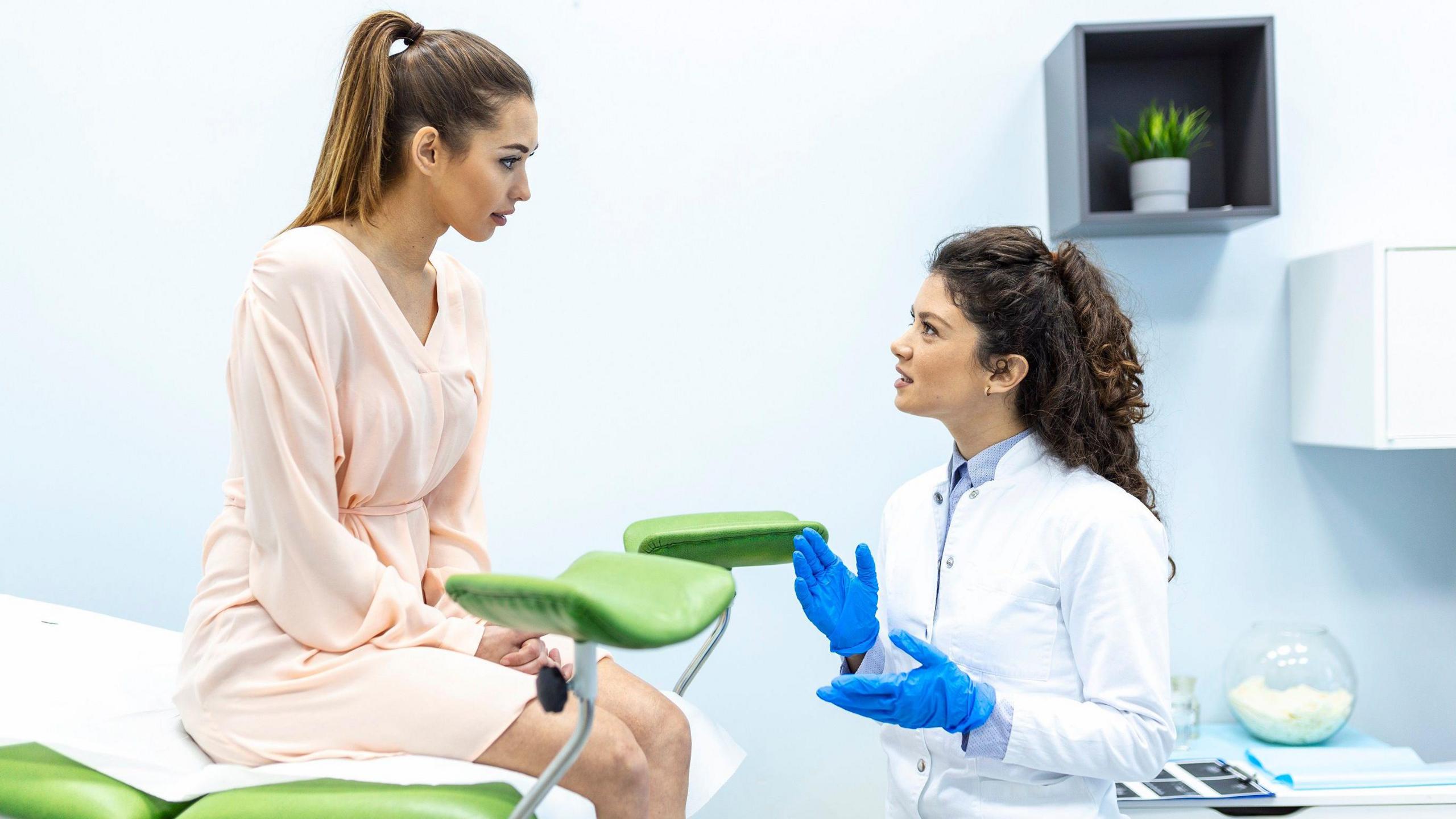
- Published17 July 2024
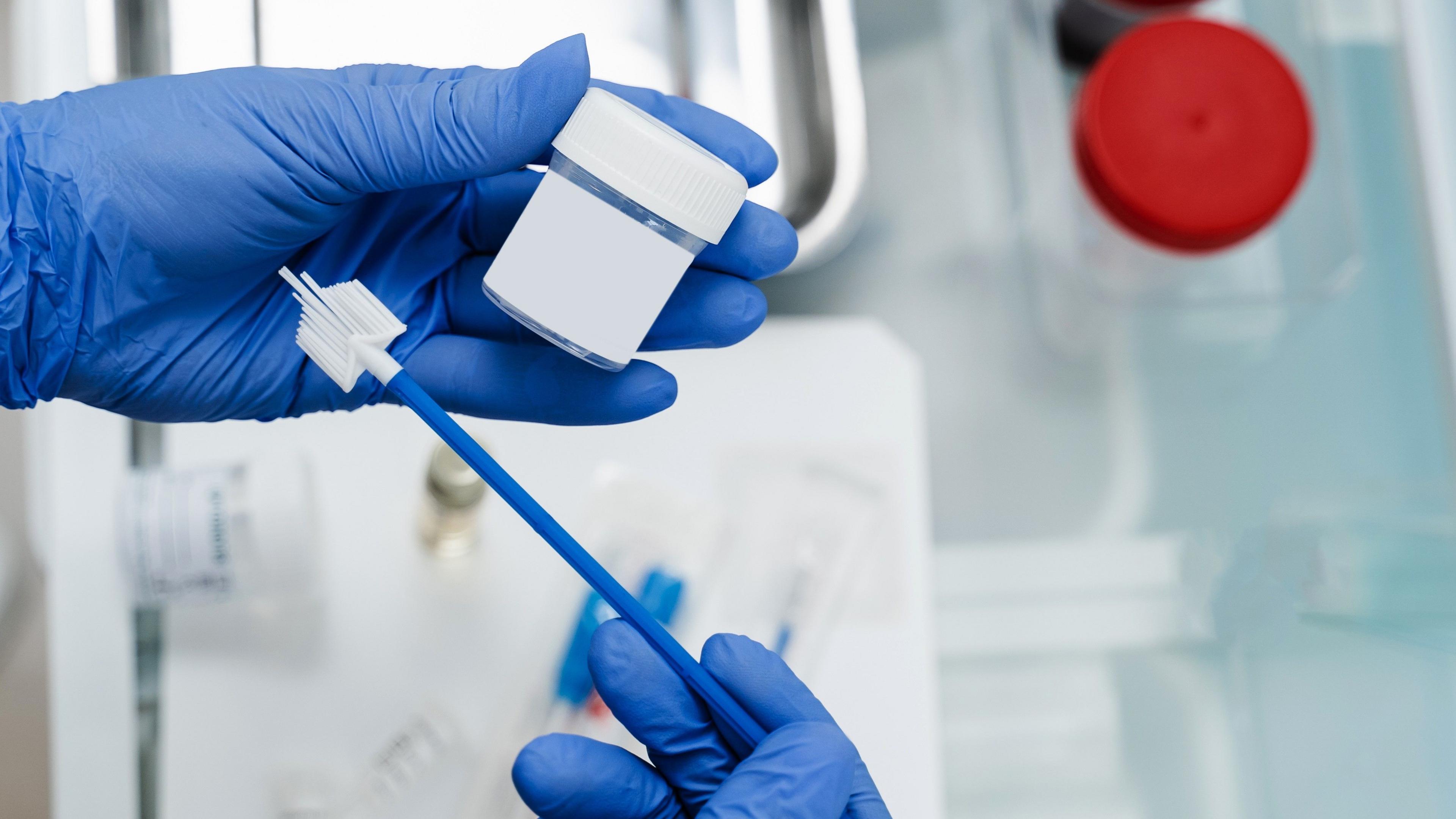
- Published1 January
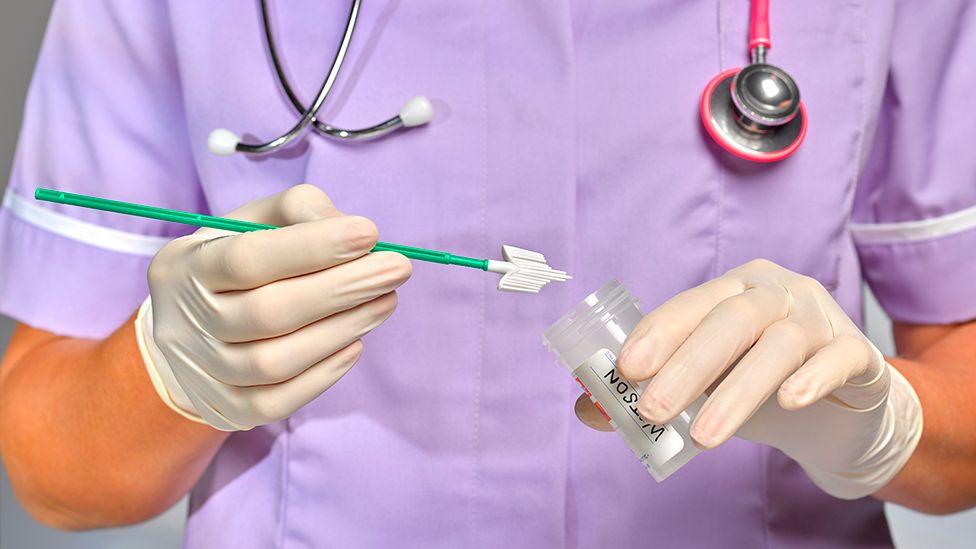
- Published29 November 2024
